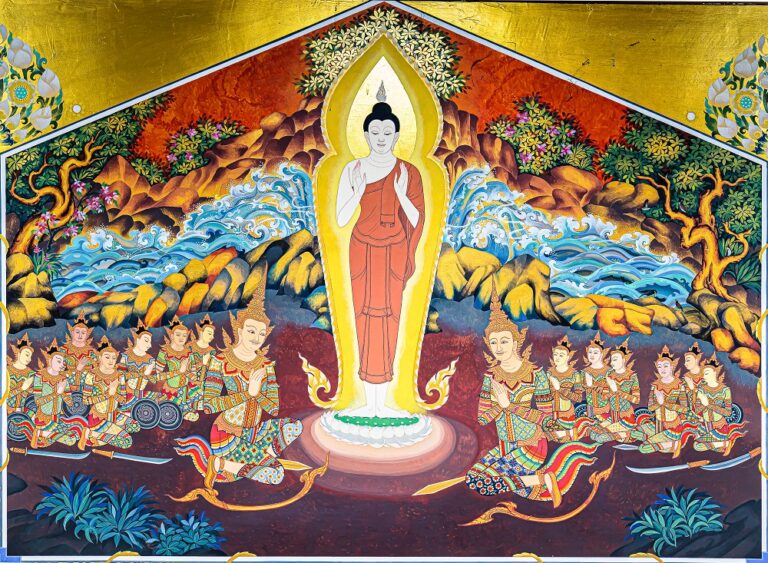
THE DISPUTE OVER RIVER ROHINI
Two towns were located on opposite banks of the Rohini River. Kapilavatthu was the town of the Sakyans, and Koliya was the town of the Kolyans. The farmers from both towns relied on the water provided by the river for their crops.
One year, there was not enough rain and the rice paddies and other fields began to dry up. The farmers on both sides of the river wanted to dig channels to bring extra water to their fields, but there was not enough water in the river for them both.
The farmers from Kapilavatthu argued that they should have the water just once, so their rice paddies would grow again. But the farmers from Koliya responded that their crops would die, and they did not want to cross the river to trade their money and valuables for food.
Both sides became very angry and shouted abuse at each other. The quarrel became so serious that the king of each side was informed, and the Sakyans and the Kolyans prepared to go to war.
The Buddha saw them in his mind’s eye as they formed their battle lines, and decided to stop them. He appeared above them, right in the middle of the river. His relatives saw him, floating peacefully in the sky, and they threw down their weapons and paid their respect to the Buddha.
The Buddha asked them why they would destroy each other for the sake of some water. He called their lives precious and priceless. He spoke to them of his own life without enemies, his freedom from moral failings, and his peace from sensual pleasures. He reminded them that the true value of life was not found in material possessions, but in inner peace and enlightenment.
The people were silent. They offered 250 men from each side as followers of Buddha. All 500 immediately became monks.
After the 250 men from each side became monks, the people were filled with a sense of peace and understanding, and the conflict over the water was resolved.
The people of Kapilavatthu and Koliya came together and found a solution to the water dispute. They decided to work together to dig channels that would bring water to both towns, so that everyone’s crops could grow. They also agreed to share the water in a fair and equitable manner.